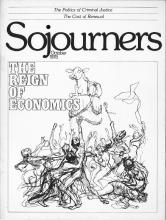For any church to begin to live a corporate life defined by the kingdom of God means that its patterns, activities, and ways of being will be fundamentally transformed and renewed. This is not simply high-sounding rhetoric or idealistic vision. Traditional churches, fellowship groups, chapters of religious orders, house churches, and residential Christian communities are tasting the radically new life which descends when they are gripped by the vision of Christ's lordship, and are empowered by the Spirit to live accordingly.
An intense personal hunger and thirst for God, and for his righteous reign to be extended in the world, lies at the heart of genuine renewal. This knowledge of our personal hunger is accompanied by the realization of our brokenness. There is no need for that which we think is whole to be transformed by God.
Nor is it possible for a renewed church to be the human product of leaders with exceptional skill, talent, and intelligence. God's gift of community can never be given as long as we self-sufficiently believe that it can be manufactured.
Renewal finds its roots in the sharing of our weakness, and in the discovery of a common hunger. And that remains the most steadfast basis for Christian community.
Inevitably, renewal brings pain. A friend said to me, "You expect a whole army to stand up and follow. And it never happens. Perhaps there are only one or two others." The transformation of a people into a spiritual family, living as a sign of the kingdom of God, never comes without cost. Those who experience this hunger, and set forth this vision, never fully see the suffering, the broken relationships, and the hurt which lie ahead of them.
Read the Full Article

